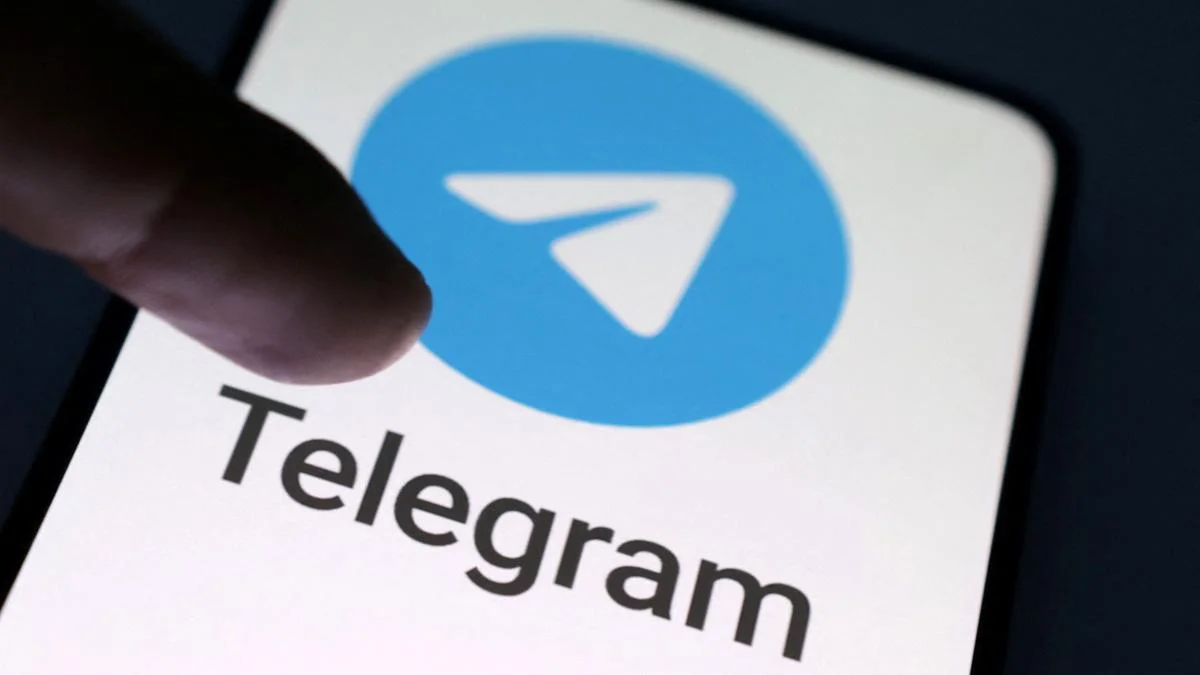The Article Tells The Story of:
- Pavel Durov, Telegram’s founder, was arrested in Paris over allegations of the platform enabling criminal activity.
- Telegram defended its moderation and privacy practices, while the investigation continues.
- The arrest sparked international debate, with Russian officials calling Durov a “political prisoner” and Elon Musk commenting on free speech concerns.
- Telegram faces growing scrutiny worldwide, especially due to its role in conflicts like the Russia-Ukraine war.
In a dramatic turn of events, Pavel Durov, a Russian-born billionaire and the founder of the popular messaging app Telegram, was detained at Le Bourget airport near Paris on Saturday evening. According to multiple sources, the 39-year-old tech mogul, with dual citizenship in France and the United Arab Emirates, was detained shortly after landing on a private jet from Azerbaijan. This arrest has ignited various reactions from all over the world as the state of free speech comes under fire by Paris through warnings from Moscow and owner of the social media, X (formerly Twitter) Elon Musk.
Check Out Latest Article of Telegram Founder Pavel Durov Slams ‘Misguided’ Arrest in France: A Battle Over Free Speech Published on
September 6, 2024 – SquaredTech
What is known about the arrest Pavel Durov.
To date, there have not been any official confirmation issued by the French authority despite the fact that it was reported that Durov was arrested because there had existed an arrest warrant for Durov in France. French police reportedly identified him on the passenger list before his jet landed and swiftly moved to arrest him. The exact reasons behind the warrant are said to be linked to preliminary investigation involving allegations that Telegram allowed a wide range of crimes to proliferate on its platform due to the lack of moderation and also the lack of cooperation with law enforcement.
Telegram, having almost 1 billion users worldwide, has gained immense popularity for its robust encryption and privacy capabilities. It is precisely the same reasons that have become a concern for many governments, especially those in Europe, that Telegram might be misused.
The Response from Telegram and Investigations Continuation
In response to Durov’s arrest, Telegram issued a statement saying that the platform abides by EU laws, including the Digital Services Act, and that its moderation practices are within industry standards. The company emphasized that Durov frequently travels across Europe and has nothing to hide. “It is absurd to claim that a platform or its owner are responsible for the abuse of that platform,” Telegram stated.
The investigation on Telegram is led by a cybersecurity unit in the French Gendarmerie and national anti-fraud police, according to a report. The case focused on how Telegram had made possible multiple crimes, alleged for inadequate moderation of said communications platform. Amid serious accusations of this sort, Telegram continued to emphasize how they remain committed to guarding privacy rights and promoting rights as fundamental as the ability to freedom of speech and to assembly.
Geopolitics Impact and International Reactions
Durov’s arrest has not only created controversy within the tech and legal circles but has also sparked a geopolitical debate. Russian lawmaker Maria Butina labeled Durov as a “political prisoner,” accusing the West of conducting a witch hunt against him. Her sentiments echo the broader narrative within Russia, where Durov’s arrest dominated news bulletins.
In a more direct response, Russia’s foreign ministry issued a note to Paris demanding access to Durov, who holds French citizenship. Former Russian President Dmitry Medvedev criticized Durov, suggesting that he misjudged the situation by fleeing Russia and assuming he would not need to cooperate with security services abroad. Medvedev’s remarks underscore the precarious position Durov finds himself in, as someone who has become an influential yet contentious figure on the global stage.
Telegram’s Origins and Impact
Founded in 2013 by brothers Pavel Durov and Nikolai, Telegram emerged as an encrypted messaging application, created at a time when Russia was increasing the pressure on social media outlets. Pavel Durov, also the founder of VK, Russia’s biggest social network, left the country in 2014 after refusing to close down opposition groups hosted on the network at the behest of Russian authorities. Since then, Telegram has been expanding exponentially and now ranks as one of the major social media sites worldwide, sitting alongside the giants like Facebook, WhatsApp, Instagram, and YouTube.
In recent years, Telegram has gained immense popularity in regions such as Russia, Ukraine, and former Soviet Union republics. During the Russia-Ukraine conflict, it has been used as a major source of unfiltered and often graphic content from both sides, which has led some analysts to describe Telegram as a “virtual battlefield” in the ongoing war, where both Ukrainian President Volodymyr Zelenskiy and the Russian government have heavily used the platform.
The Future of Telegram and Its CEO
Durov’s arrest is critical to the future of Telegram, which is still facing much scrutiny from different governments around the world. Though the platform has stuck to its principles of privacy and free speech, it cannot remain immune to pressure from all the authorities in the world.
Meanwhile, Elon Musk’s comments on the situation have only added to the debate about the future of free speech and digital privacy in Europe. “It’s 2030 in Europe and you’re being executed for liking a meme,” Musk tweeted, underscoring the growing concerns over the perceived erosion of civil liberties.
As the situation unfolds, only time will tell how the legal battles for Durov will impact the operation of Telegram and the general conversation about privacy, security, and free speech in the digital age.
To follow updates on this ongoing story, check out the official website for Telegram.
More News: Tech News


